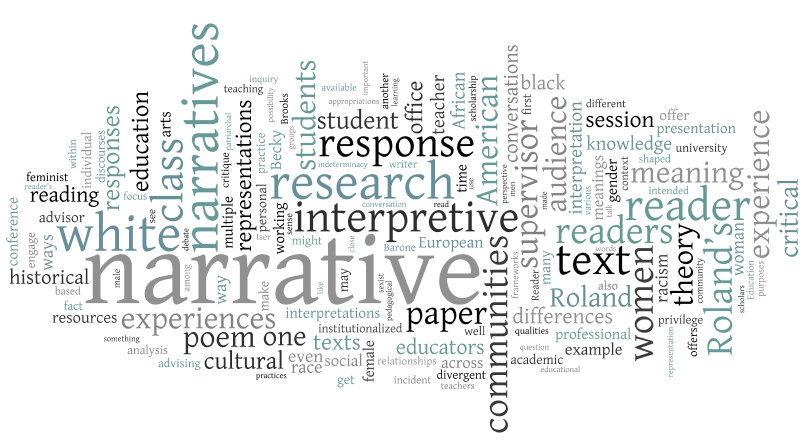"Why Didn't They Get It?" "Did They Have to Get It?":
What Reader Response Theory Has to Offer Narrative Research and Pedagogy
Becky Atkinson
University of Alabama, USA
Roland Mitchell
Louisiana State University, USA
Citation: Atkinson, B., & Mitchell, R. (2010). "Why didn't they get it?" "Did they have to get it?": What reader response theory has to offer narrative research and pedagogy. International Journal of
Education & the Arts, 11(7). Retrieved [date] from http://www.ijea.org/v11n7/.
Abstract
In this paper we suggest that narrative representations that seemingly fail to reach an
audience as intended may engage the audience in more meaningful ways. We use reader
response theory to explore how an audience's responses to a conference narrative
presentation made available a multiplicity of interpretive frameworks and narratives to the
readers/listeners. We assert that when various interpretive frameworks are made visible
across the context of a narrative text by the readers' or listeners' responses to it, they can
be examined for how they collude, collide, exclude, and compete for meaning. At the
same time, conversations evoked by narrative texts and through other arts can generate
greater understanding across and through cultural differences. This offers dynamic
pedagogical possibilities through appealing to our horticultural approach of seeking out
knowledge gained from conversations across divergent interpretive communities. Our
point here is that the intentional creation of instances where students are challenged to recognize the taken for granted notions that ground their worldviews through the arts in
education and education in the arts affords indispensable opportunities to engage students
in a richer type of teaching and learning.
Visual Abstract

This article is available in PDF format.
|

